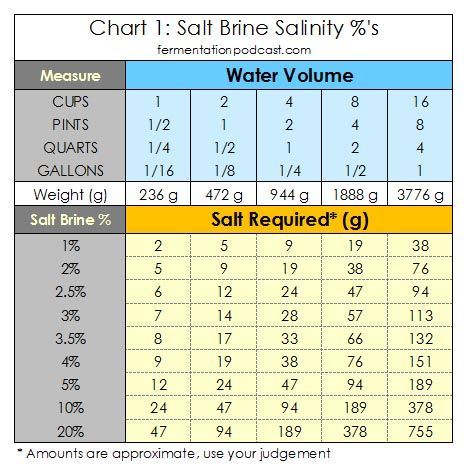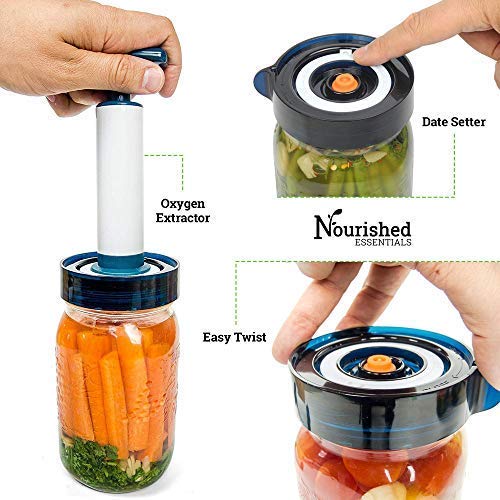I've tried to read the fermenting 101 thread but came away more confused.
What is a simple ratio salt to water ?
Is one Table spoon of salt per cup water good enough ? Do you add a bit of vinegar after the ferment is finished ? Is it OK to add spices in the beginning or should you wait till the end ?
Also why use a starter it will ferment without one correct ? If I use juice from sauerkraut how much juice for a pint of brine ?
Also it says boil the finished ferment but isn't that going to kill the bacteria you fermented for ?
I know these questions have been ask over and over thanks ahead of time.
What is a simple ratio salt to water ?
Is one Table spoon of salt per cup water good enough ? Do you add a bit of vinegar after the ferment is finished ? Is it OK to add spices in the beginning or should you wait till the end ?
Also why use a starter it will ferment without one correct ? If I use juice from sauerkraut how much juice for a pint of brine ?
Also it says boil the finished ferment but isn't that going to kill the bacteria you fermented for ?
I know these questions have been ask over and over thanks ahead of time.


